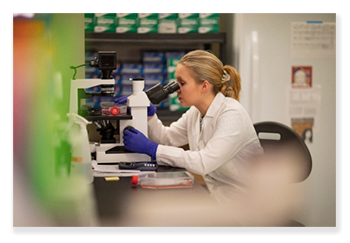HSP90 Inhibitors Protective Effects on Endothelial Barrier Function Are Directly Related to HSP70 Levels
Document Type
Abstract
Publication Date
3-29-2023
Category
Young Investigator
DOI
10.25776/vhak-ec13
Conference Name
2023 Frank Reidy Research Center for Bioelectrics Retreat
Abstract
Background: Hydrochloric acid (HCl) is a common chemical used in various industries, medical practices, and scientific laboratories. HCl exposure can lead to respiratory failure, acute respiratory distress syndrome (ARDS), and, depending on the duration of exposure, death. Some of the dangerous effects of HCl are related to its ability to disrupt the alveolar-capillary barrier function, resulting in fluid leakage into the alveoli and acutely provoking the development of ARDS. Heat Shock Proteins (HSPs) are molecular chaperones that assist in the folding, stabilization, and activity of proteins involved in many cellular processes such as cell cycle control, cell survival, and cell signaling. The use of HSP90 inhibitors disrupts the stability of its “client proteins” resulting in anti-inflammatory and antifibrotic effects. It is not clear if these effects are related to HSP90 co-chaperone HSP70. We hypothesized that inhibition of HSP90, together with overexpression of HSP70, would have a stronger beneficial effect on endothelial barrier function disrupted by HCl.
Methods: Cultured Human lung endothelial cells (HLMVECs) were treated with different concentrations of HSP 90 inhibitor TAS-116 and HSP 70 inducer Geranylgeranyl acetone (GGA). Cells were exposed to HCl and Electric cell-substrate impedance sensing measured changes in resistance.
Results: Cells treated with TAS-116 and GGA had a statistically significant difference in membrane resistance compared to the control group of saline-treated cells. This suggests the effectiveness of TAS-116 and GGA in maintaining endothelial barrier function after exposure to an inflammatory agent like HCl. However, we found no statistically significant difference between cells treated with TAS-116, TAS-116+GGA, and control cells, suggesting that these treatments may have the potential to bring endothelial barrier function back to baseline.
Conclusions: Our findings show that the use of HSP90 inhibitors and HSP70 inducers may represent a valid combined therapy to help mitigate the effects of HCl-induced inflammation in HLMVECs.
Repository Citation
Colunga Biancatelli, Ruben Manuel Luciano; Osei-nkansah, Michael; Solopov, Pavel; Day, Tierney; Gregory, Betsy W.; Dimitropoulou, Christiana; and Catravas, John D., "HSP90 Inhibitors Protective Effects on Endothelial Barrier Function Are Directly Related to HSP70 Levels" (2023). 2023 Frank Reidy Research Center for Bioelectrics Retreat. 1.
https://digitalcommons.odu.edu/bioelectrics-2023retreat/1
ORCID
0000-0002-1174-3876 (Colunga Biancatelli), 0000-0002-1705-027X (Solopov), 0000-0002-5098-295X (Catravas)


